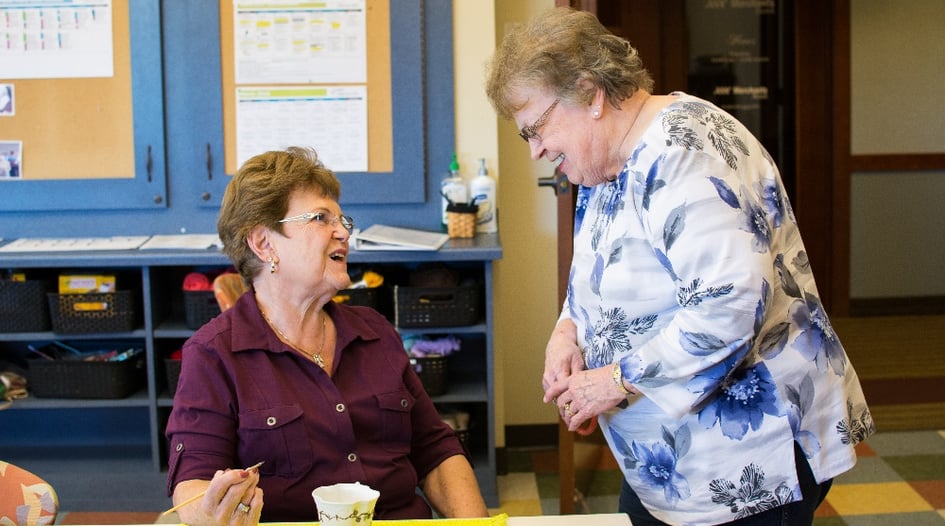Overcoming incontinence: Advice for seniors
Nicole Sauve, PTA, CBIS | Jan 23, 2020
For those struggling with incontinence, trying to live the life they want to live can be discouraging and frustrating. The issue affects more people than you may think: though it can affect anyone of any age, seniors account for more than half of those experiencing incontinence. At Walker Methodist, we are dedicated to educating seniors about this condition and helping them overcome difficulties.
What is incontinence?Uncontrolled bladder or movements, sudden urges to use the bathroom, increased frequency of using the bathroom—all of these are signs of incontinence. And all of these issues can cause people to alter their lifestyles.
Some people experiencing incontinence begin planning their daily activities around using the bathroom. Others stop going out or meeting with friends because they fear a bathroom might not be available.
Incontinence can also cause emotional changes including embarrassment or depression because they are no longer able to participate in activities they enjoy. Urologist Dr. Farzeen Firoozi said incontinence has “emotional, health, and social impacts in the daily life of our elderly population.”
Kathy Fox, lead therapist at Walker Methodist Westwood Ridge, has been an occupational therapist for 19 years. She said, “Incontinence can be embarrassing and isolating. More people struggle with it than expected.”
 Tips for decreasing symptoms
Tips for decreasing symptoms
Incontinence doesn’t have to be a hindrance to living life to the fullest. Though not guaranteed, there are simple ways that might help decrease symptoms, such as the following:
- Avoiding spicy or acidic foods
- Decreasing or eliminating caffeine or alcohol
- Drinking enough water
- Eating fiber-rich foods like fruit, green vegetables, and beans or lentils
Our rehab team at Walker Methodist can also help seniors get back to the life they intend to live. How? Exercise.
Since implementing the Roll for Control® incontinence training program, Kathy has seen incredible improvements in those participating in the program. “This program helps improve their social life, emotional wellbeing, and quality of life,” she said. “I have seen great success with patients who have completed the program.”
Participants in the program work with skilled therapists who provide education about targeted muscle exercises, suggest lifestyle changes, and teach physiological quieting techniques. Seniors learn how to set themselves up for lifelong success. In eight to 12 sessions, most people experience a reduction or elimination of their incontinence challenges.
If you are struggling with incontinence, there are ways to get back to the life you love.
To learn more about the Roll for Control® program, contact Kathy Fox at kfox@walkermethodist.org or call 651.259.2924.
Sources:
Hulme, J. A. (2016). Beyond Kegels (4th ed.). Helena , MO: Phoenix Publishing Co.
https://www.webmd.com/urinary-incontinence-oab/news/20140625/over-half-of-seniors-plagued-by-incontinence-cdc#2
Co-Author: Sheila McBride COTA, CLS